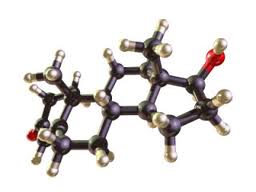 A new Northwestern University study provides compelling evidence that human males are biologically wired to care for their offspring, conclusively showing for the first time that fatherhood lowers a man’s testosterone levels. So guys, there is no excuse for not pitching in and, ladies, this is good news if you are a new mother who could use some help with that new family addition!.
A new Northwestern University study provides compelling evidence that human males are biologically wired to care for their offspring, conclusively showing for the first time that fatherhood lowers a man’s testosterone levels. So guys, there is no excuse for not pitching in and, ladies, this is good news if you are a new mother who could use some help with that new family addition!.
The effect is consistent with what is observed in many other species in which males help take care of dependent offspring. Testosterone boosts behaviors and other traits that help a male compete for a mate. After they succeed and become fathers, “mating-related” activities may conflict with the responsibilities of fatherhood, making it advantageous for the body to reduce production of the hormone.
“Humans are unusual among mammals in that our offspring are dependent upon older individuals for feeding and protection for more than a decade,” said Christopher W. Kuzawa, co-author of the study and associate professor of anthropology in the Weinberg College of Arts and Sciences. “Raising human offspring is such an effort that it is cooperative by necessity, and our study shows that human fathers are biologically wired to help with the job.”
Past studies showing that fathers tend to have lower testosterone levels were small and not conclusive regarding whether fatherhood diminished testosterone or whether men with low testosterone in the first place were more likely to become fathers. The new study takes a novel approach by following a large group of men who were not fathers and seeing whether their hormones changed after becoming fathers.
“It’s not the case that men with lower testosterone are simply more likely to become fathers,” said Lee Gettler, a doctoral candidate in anthropology at Northwestern and co-author of the study. “On the contrary, the men who started with high testosterone were more likely to become fathers, but once they did, their testosterone went down substantially. Our findings suggest that this is especially true for fathers who become the most involved with child care.”
The new study’s findings also suggest that fathers may experience an especially large, but temporary, decline in testosterone when they first bring home a newborn baby. “Fatherhood and the demands of having a newborn baby require many emotional, psychological and physical adjustments,” Gettler said. “Our study indicates that a man’s biology can change substantially to help meet those demands.”
The authors also suggest that their findings may provide insight into one reason why single men often have poorer health than married men and fathers. “If fathers have lower testosterone levels, this might protect them against certain chronic diseases as they age,” Kuzawa said.
The study followed a group of 624 males aged 21.5 to 26 years old for 4.5 years in the Philippines.
“Longitudinal Evidence That Fatherhood Decreases Testosterone in Human Males” was published Sept. 12, 2011, in the Proceedings of the National Academy of Sciences.


 No, you did not open the wrong page. Yes, this blog is posted by the
No, you did not open the wrong page. Yes, this blog is posted by the  Low testosterone levels to blame for low libido, fatigue and weight gain
Low testosterone levels to blame for low libido, fatigue and weight gain